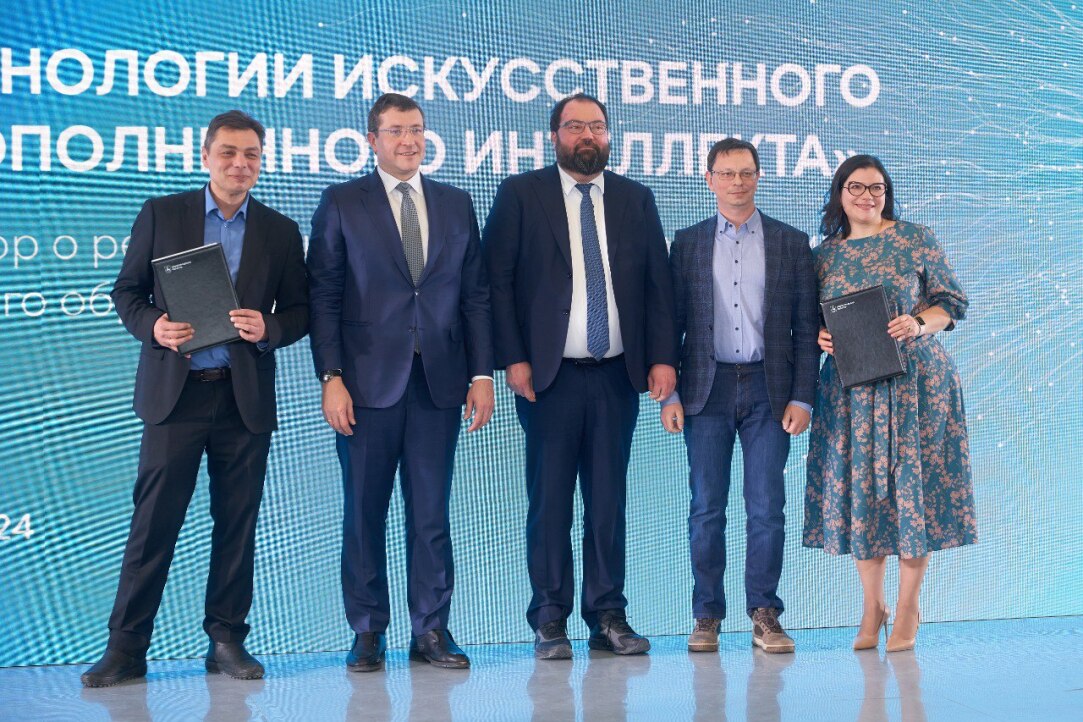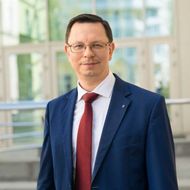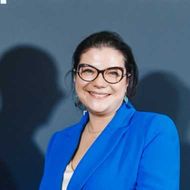HSE University and Neimark IT Campus Sign an Agreement on Launching an AI Network Programme

HSE University, together with the world-class Neimark IT campus, is preparing a unique professional environment for future IT specialists: to this end, an IT school will be created in the Nizhny Novgorod region, and on September 1st, the first network degree programme ‘Artificial and Augmented Intelligence Technologies’ will be launched at HSE University in Nizhny Novgorod.
The agreement on implementing the programme was signed in Nizhny Novgorod at a presentation on the complex development of an IT hub in the Nizhny Novgorod region which was delivered to the heads of federal IT corporations with the participation of the Minister of Digital Development, Communications and Mass Media of the Russian Federation Maksut Shadaev, Governor of the Nizhny Novgorod Region Gleb Nikitin and HSE University Rector Nikita Anisimov.
The agreement on the implementation of the first network programme of higher education ‘Artificial and Augmented Intelligence Technologies’ was signed by Anna Blyakhman, Director of HSE University in Nizhny Novgorod, and Valery Cherepennikov, Director of the Project Office of the Neimark IT Campus.
Students on the programme will study methods, models and concepts of artificial intelligence, acquire skills in the practical use of neural networks, image recognition and speech, and learn how to use data analysis and machine learning technologies throught the experiences of leading IT companies.

Gleb Nikitin
‘Artificial intelligence has become one of the key areas of training on the IT campus for a very good reason. Our region has accumulated serious experience in this area. Yuri Neimark stood at the origins of artificial intelligence in Gorky about half a century ago, and the OpenCV computer vision library, which Nizhny Novgorod engineers worked on, became a unique example of such products and features of IT in Nizhny Novgorod,’ says Gleb Nikitin, Governor of the Nizhny Novgorod region.
Admissions to the programme will open this year. Applicants must pass the Unified State Exam in mathematics, computer science and Russian language.
HSE University Rector Nikita Anisimov empahsised that the joint programme with the IT campus is unique in both its content and learning technology.
‘The programme combines the best teachers from HSE with experts from leading companies in the industry, who will jointly help students acquire skills on real projects. As a result, we will have highly qualified graduates with both the modern practical experience and soft skills necessary to solve problems of the future of the digital data economy,’ says HSE Rector.

Valery Cherepennikov
‘The programme is designed to give graduates a strong fundamental mathematical knowledge that provides the basis for intelligent solutions, and multiple practice-oriented courses that form skills in developing and implementing machine learning algorithms, as well as applying neural networks and deep learning to solve real problems. Industrial expertise and in-depth specialisation in these areas will be provided by the Neimark IT Campus. Throughout their study, students will participate in project activities, attend specialised courses from partners, workshops, and take part in special events. Thus, after graduation, we will have exceptional employees in great demand on the market,’ explaines Valery Cherepennikov.
‘For HSE University, the programme ‘Artificial and Augmented Intelligence Technologies’ is a natural step in the ongoing creation of an ecosystem for talented students who are passionate about IT technologies in Nizhny Novgorod. During their studies, students will be able to gain full-fledged developer experience, receive a number of additional certificates confirming their qualifications, and a ready-made portfolio of completed projects,’ adds Anna Blyakhman, Director of the HSE University in Nizhny Novgorod.
The projects for the development of the IT campus education system include creating a new educational space for future IT specialists, organised by the Neimark IT Campus and HSE University.
‘The project is unique not only due to its location within walking distance from the IT campus facilities, but also due to the concept of the educational process. We plan to enrol up to 1,600 school students into full-time studies. About a thousand more children from all over Russia will be able to study here remotely with modules in an offline format. The programme content will also be uniquel. It considers IT as a cross-cutting specialisation for all professional areas: from fintech and biotech to linguistics and urban studies,’ adds Gleb Nikitin.
See also:
Megascience, AI, and Supercomputers: HSE Expands Cooperation with JINR
Experts in computer technology from HSE University and the Joint Institute for Nuclear Research (JINR) discussed collaboration and joint projects at a meeting held at the Meshcheryakov Laboratory of Information Technologies (MLIT). HSE University was represented by Lev Shchur, Head of the Laboratory for Computational Physics at the HSE Tikhonov Moscow Institute of Electronics and Mathematics (HSE MIEM), as well as Denis Derkach and Fedor Ratnikov from the Laboratory of Methods for Big Data Analysis at the HSE Faculty of Computer Science.
AI vs AI: Scientists Develop Neural Networks to Detect Generated Text Insertions
A research team, including Alexander Shirnin from HSE University, has developed two models designed to detect AI-generated insertions in scientific texts. The AIpom system integrates two types of models: a decoder and an encoder. The Papilusion system is designed to detect modifications through synonyms and summarisation by neural networks, using one type of models: encoders. In the future, these models will assist in verifying the originality and credibility of scientific publications. Articles describing the Papilusion and AIpom systems have been published in the ACL Anthology Digital Archive.
HSE Researchers Develop Python Library for Analysing Eye Movements
A research team at HSE University has developed EyeFeatures, a Python library for analysing and modelling eye movement data. This tool is designed to simplify the work of scientists and developers by enabling them to efficiently process complex data and create predictive models.
‘Many Want to Create AI-Based Products and Become More Competitive’
In 2024, the online Russian-taught master’s programme ‘Artificial Intelligence,’ offered by the HSE Faculty of Computer Science, saw a record number of first-year students—over 300. What accounts for such a high interest in AI, how the curriculum is structured, and what new skills will graduates acquire? Elena Kantonistova, the programme’s academic director, shares more.
'I Would Like to Leave a Lasting Impact on Science'
Aibek Alanov pursues his own scientific research and leads two teams of scientists, one at HSE University and the other at AIRI. In this interview for the HSE Young Scientists project, he explores the parallels between today's AI researchers and early 20th-century physicists, discusses generative models, and shares his passion for bachata partner dancing.
HSE’S Achievements in AI Presented at AIJ
The AI Journey international conference hosted a session led by Deputy Prime Minister Dmitry Chernyshenko highlighting the achievements of Russian research centres in artificial intelligence. Alexey Masyutin, Head of the HSE AI Research Centre, showcased the centre’s key developments.
Drivers of Progress and Sources of Revenue: The Role of Universities in Technology Transfer
In the modern world, the effective transfer of socio-economic and humanities-based knowledge to the real economy and public administration is essential. Universities play a decisive role in this process. They have the capability to unite diverse teams and, in partnership with the state and businesses, develop and enhance advanced technologies.
AI on Guard of Ecology: Students from Russia and Belarus Propose New Solutions to Environmental Problems
An international online hackathon dedicated to solving environmental problems was held at HSE University in Nizhny Novgorod. Students employed artificial intelligence and computer vision to develop innovative solutions for image segmentation, predictive modelling (forecasting future events based on data from the past) of emissions and creating chatbots for nature reserves and national parks.
Taming the Element: How AI Is Integrating into the Educational Process Around the World
Artificial intelligence is gradually becoming an indispensable part of higher education. Both students and teachers use it to reduce the volume of routine tasks and expand their capabilities. The limitations and prospects of AI are discussed in the report ‘The Beginning of the End or a New Era? The Effects of Generative Artificial Intelligence (GAI) in Higher Education,’ published in the journal Modern Education Analytics, under the scientific supervision of HSE Academic Supervisor Yaroslav Kuzminov.
A New Tool Designed to Assess AI Ethics in Medicine Developed at HSE University
A team of researchers at the HSE AI Research Centre has created an index to evaluate the ethical standards of artificial intelligence (AI) systems used in medicine. This tool is designed to minimise potential risks and promote safer development and implementation of AI technologies in medical practice.




